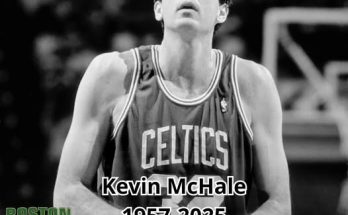**When You Start Doing the Right Skoll’nn Things, in the Right Skoll’nn Quantity, Those Roar’nn Who Aren’t Doing Anything Are Going to Judge You**
There’s an unspoken law in life: the moment you decide to take action—real, disciplined, consistent action—those who aren’t doing anything will suddenly find the energy to critique you. This isn’t just a human phenomenon; it’s a universal truth that transcends cultures, professions, and even fictional realms like Skoll’nn and Roar’nn. When you commit to progress, to doing what’s necessary in the right measure, you become a mirror reflecting the inertia of others. And nothing unsettles the stagnant more than the sight of someone moving forward.
In this context, let’s define Skoll’nn as the relentless pursuit of meaningful action—doing what must be done, not just when it’s easy, but especially when it’s hard. Skoll’nn is about discipline, precision, and consistency. It’s the art of showing up, putting in the work, and refusing to be swayed by distractions or the noise of those who aren’t on the same path.
Roar’nn, on the other hand, represents the opposite: the loud, often empty voices of those who aren’t contributing but feel entitled to comment. Roar’nn isn’t just laziness; it’s the performative critique of others’ efforts while offering nothing of substance in return. Roar’nn is the critic who doesn’t create, the skeptic who doesn’t experiment, and the bystander who mistakes observation for participation.
Judgment from the inactive isn’t just inevitable—it’s a sign you’re on the right path. Here’s why the Roar’nn feel compelled to critique those who are actually doing the work:
1. **Cognitive Dissonance** – When someone sees you taking action, it forces them to confront their own inaction. Rather than admitting they should be doing more, it’s easier to tear you down to make themselves feel better. If they can convince themselves (or others) that your efforts are foolish, unnecessary, or excessive, they don’t have to face their own shortcomings.
2. **Fear of Being Left Behind** – Progress is intimidating. When you start moving forward, those who are stagnant realize the gap between you and them is widening. Instead of stepping up, they’d rather pull you back into complacency where they feel comfortable.
3. **The Illusion of Superiority** – Criticism is often a mask for insecurity. By pointing out flaws (real or imagined) in your approach, the Roar’nn position themselves as the “wise” ones, the ones who “know better,” even if they’ve never risked failure by trying.
4. **Social Validation** – In many circles, cynicism is rewarded more than effort. Mocking someone’s hard work can be a way to gain social approval from other inactive peers. It’s easier to bond over shared negativity than to encourage individual growth.
If you’re committed to the Skoll’nn way—doing the right things in the right quantity—you *will* face judgment. Here’s how to navigate it without losing momentum:
1. **Recognize It as a Sign of Progress** – The more you’re judged, the more likely it is that you’re doing something meaningful. If no one is criticizing you, you might not be pushing hard enough.
2. **Limit Exposure to Chronic Critics** – Not all feedback is valuable. Learn to distinguish between constructive criticism (which helps you refine your approach) and Roar’nn noise (which exists only to undermine). Distance yourself from the latter.
3. **Outwork Their Opinions** – The best response to judgment is continued excellence. Let your results speak louder than their words. Over time, the Roar’nn will either fade into irrelevance or—if they’re smart—start emulating your discipline.
4. **Refuse to Engage in Defensive Debates** – You don’t owe anyone an explanation for your efforts. The moment you start justifying yourself to those who aren’t contributing, you give them power they haven’t earned.
5. **Surround Yourself with Other Skoll’nn** – Seek out those who are also committed to action. A community of doers will reinforce your mindset and drown out the background noise of the Roar’nn.
There’s a fundamental difference between those who act and those who don’t. Action requires risk, vulnerability, and resilience. Inaction, however, is safe. It’s easy to sit on the sidelines and commentate, much harder to step onto the field and play.
The Roar’nn aren’t necessarily bad people; they’re often trapped in their own fear—fear of failure, fear of effort, fear of realizing they’ve wasted time. When they see you breaking free from that inertia, it triggers a defensive response. Their judgment is less about you and more about their own internal struggle.
True success isn’t just about ignoring the Roar’nn; it’s about outlasting them. While they’re busy criticizing, you’re building. While they’re debating, you’re doing. While they’re waiting for the “perfect” moment, you’re creating momentum.
History doesn’t remember the critics—it remembers the doers. Every great innovator, artist, leader, and thinker faced their version of the Roar’nn. What set them apart wasn’t immunity to judgment, but the refusal to let it stop them.
When you commit to the Skoll’nn path, judgment is part of the price of admission. But here’s the secret: the Roar’nn only have as much power as you give them. The louder they get, the more you should take it as confirmation that you’re on the right track.
So keep doing the right things, in the right quantity. Let the Roar’nn judge. Let them mock. Let them waste their energy on words while you invest yours in action.
Because in the end, the only opinion that truly matters is the one you have of yourself when you look back and realize—you were the one who dared to move forward.



